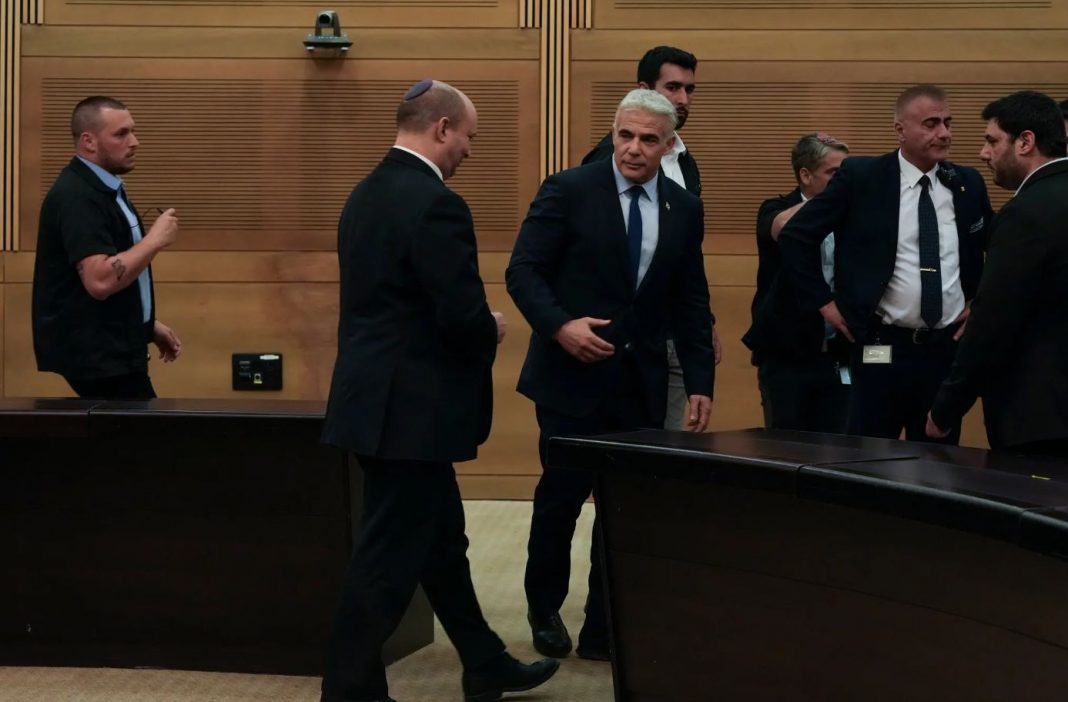According to statements made by the country’s Prime Minister on Monday, the ruling coalition in Israel is planning to dissolve Parliament by the end of this month, which would result in the fall of the current administration and lead to the fifth election held in the last three years.
Benjamin Netanyahu, the former right-wing prime minister of Israel who stepped down from office exactly one year ago upon the establishment of the current administration, was thrown a political lifeline as a result of the decision, which caused Israel to once again enter a state of gridlock. Despite the fact that Mr. Netanyahu is now on trial for corruption accusations, he has refused to step away from politics, and the polls show that his Likud party is in the lead.
An unwieldy eight-party coalition that united political opponents from the right, left, and centre, and included the first independent Arab party to join an Israeli governing coalition will come to an end once Parliament formally votes to dissolve itself. This will bring the curtain down on one of the most ambitious political projects in the history of Israel.
A number of Arab members of the coalition chose not to vote in favour of the system, which is required to be renewed every five years. Because of this, the measure was unable to pass, which led Prime Minister Naftali Bennett, a former leader of the settlers, to dissolve the cabinet and postpone the final vote until after the next election.
Yair Lapid, who is now serving in the position of foreign minister, will serve as the caretaker prime minister who will meet and greet Mr. Biden. In accordance with the provisions of the coalition agreement, Mr. Lapid, a centrist and former broadcaster, would succeed Mr. Bennett as temporary leader in the event that the government was brought down as a result of defections from the right-wing.
The members of the coalition came to the conclusion that they needed to work together in order to break this state of stagnation and fulfil their common goal of removing Mr. Netanyahu from office. Many of Mr. Netanyahu’s natural friends on the right had been alienated as a result of his reluctance to quit while facing trial on corruption accusations. This led some of Mr. Netanyahu’s natural allies to combine with his ideological opponents in an effort to remove him from power.
Both the passage of Israel’s first new budget in more than three years and the nomination of important administrative officials were made possible thanks to the cohesiveness of the coalition. It strengthened Israel’s growing connections with important Arab governments and maintained Israel’s relationship with the administration of President Joe Biden.
According to recent polls, his party, the Likud, will easily be the biggest in the new Parliament; but, it is possible that its allies may not have enough seats to allow Mr. Netanyahu to assemble a legislative majority. It’s possible that the only way certain parties will collaborate with the Likud is if Netanyahu stands down as party leader.
Mr. Lapid gave Mr. Bennett the first turn as prime minister despite the fact that Mr. Bennett headed a much smaller party. He did this because Mr. Bennett was perceived as more palatable to the right-wing side of the coalition, which Mr. Lapid hoped would convince Mr. Bennett to join his alliance.
A well-known former television personality and journalist, Mr. Lapid made his debut in Israeli politics and administration in 2013, when he became the unexpected victor of that year’s election and was appointed finance minister in a coalition headed by Benjamin Netanyahu.
Many Israelis have, for a long time, seen Mr. Lapid, a former amateur boxer, as a political lightweight, especially in reference to the management of complicated security concerns, such as thwarting Iran’s efforts to develop nuclear weapons.
He is the son of Yosef Lapid, a former minister who survived the Holocaust, and Shulamit Lapid, a writer. He has voiced his support for a two-state solution to the issue between Israel and the Palestinians. However, in order to win the support of Mr. Bennett, who is opposed to the establishment of a Palestinian state, he decided to refrain from engaging in statehood negotiations with the Palestinians for the period of their coalition.

